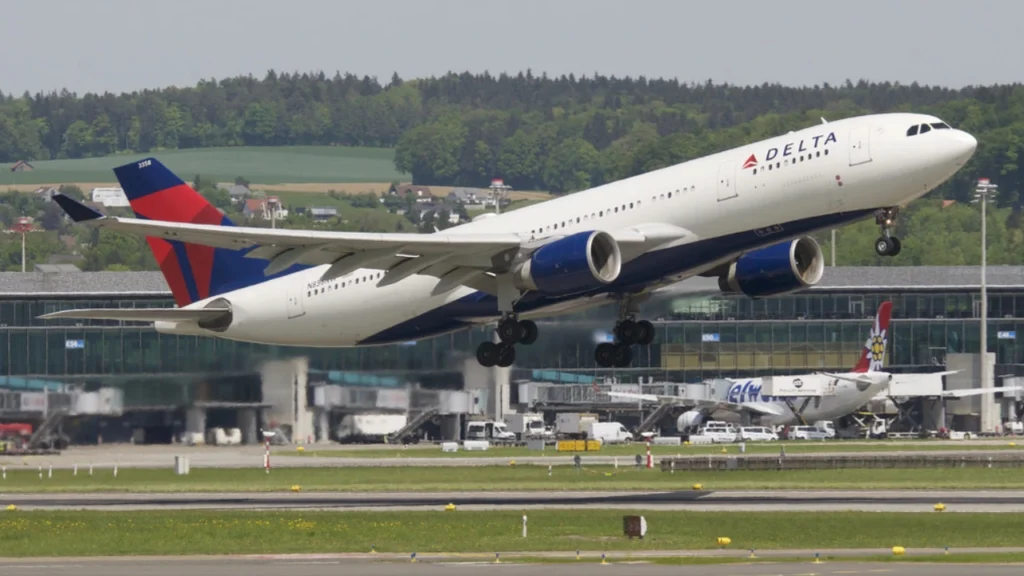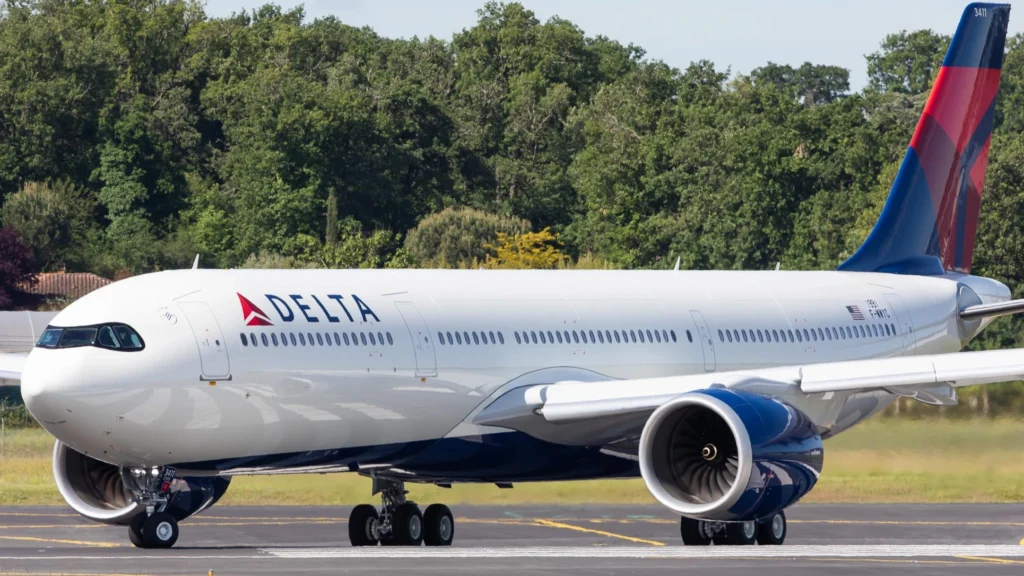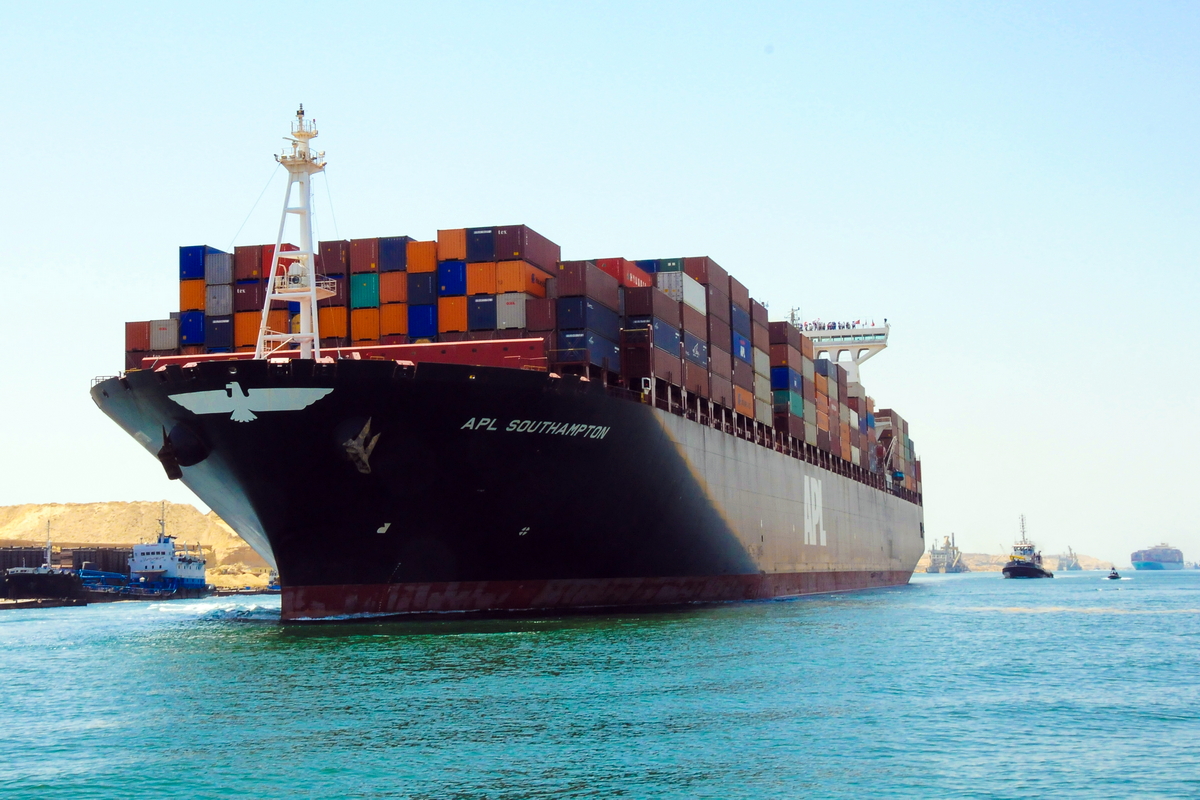
Атланта - Рейс Delta Air Lines (DL) из лондонского Хитроу (LHR) в Бостон Логан (BOS) был вынужден срочно вернуться вскоре после взлета. Airbus A330, перевозивший 259 пассажиров, благополучно приземлился в Хитроу после инцидента в полете 5 октября.
Это событие произошло как раз в тот момент, когда Delta продолжает масштабную программу замены вспомогательных силовых установок (ВСУ) в своем парке самолетов Airbus для снижения рисков инцидентов загрязнения воздуха. По данным PYOK, пострадавший самолет был относительно новым широкофюзеляжным, поставленным в 2021 году с завода Airbus в Тулузе.
 Фото: Aero Icarus | Flickr
Фото: Aero Icarus | FlickrДельта А330 Экстренная посадка в Хитроу
Рейс Дельта DL59 Вылетел из лондонской взлетно-посадочной полосы Хитроу 27R около 10 часов утра по местному времени и начал свой подъем к крейсерской высоте.
За несколько минут до подъема пилоты обнаружили необычные пары в кабине пилота, что вызвало быстрое решение отвлечься. Самолет повернул обратно над Корнуоллом и снова вошел в воздушное пространство Великобритании, сделав резкий маневр над Южным Лондоном, прежде чем благополучно приземлиться в Хитроу.
По прибытии машины скорой помощи окружили самолет, и пожарные команды поднялись на борт, чтобы оценить ситуацию. Позже пассажиров доставили автобусом до терминала.
Delta подтвердила, что самолет благополучно приземлился, и привела в качестве причины диверсии «сообщения о дыме в самолете». Авиакомпания заявила, что рейс будет выполняться на следующий день, а клиенты будут забронированы и размещены на ночь.
 Источник: Clément Alloing
Источник: Clément AlloingУсилия Delta по замене ВСУ
Инцидент произошел вскоре после сообщений о том, что Delta заменяет сотни ВСУ на своих самолетах серии Airbus A320.
ВСУ, небольшой вспомогательный двигатель, расположенный в хвосте самолета, обеспечивает электрическую мощность на земле и помогает в запуске основных двигателей. Старые модели ВСУ были связаны с «паровыми явлениями», когда воздух в салоне загрязняется моторным маслом или другими загрязнителями.
Инициатива по замене Delta, начатая в 2022 году, направлена на минимизацию этих рисков. Однако эксперты отмечают, что модернизация ВСУ сама по себе может не устранить все источники загрязнения воздуха.
Большинство коммерческих самолетов, включая Airbus A330, участвующих в этом инциденте, используют систему «кровоточащего воздуха», которая обеспечивает воздух в салоне, направляя сжатый воздух от двигателей. Этот процесс может иногда вводить следы масла или смазочных материалов в систему вентиляции.
 Источник: Clément Alloing
Источник: Clément AlloingПонимание паровых событий
Несмотря на то, что события с дымом происходят относительно редко, они вызвали постоянные дискуссии о безопасности в авиационной отрасли. Загрязненный воздух может быть результатом утечки моторного масла, электрических неисправностей или даже сильных чистящих средств, используемых во время технического обслуживания.
В большинстве случаев воздействие вызывает легкие симптомы, такие как головные боли или раздражение глаз, но некоторые зарегистрированные случаи привели к более серьезным заявлениям о здоровье.
Авиационные регуляторы и производители утверждают, что события с дымом являются необычными и обычно неопасными. Тем не менее, несколько пилотных союзов и правозащитных групп продолжают настаивать на улучшении систем обнаружения и стандартизированных протоколов реагирования в авиакомпаниях.
В своем официальном заявлении Delta подчеркнула, что безопасность пассажиров и экипажа является ее главным приоритетом, подтвердив, что отвлечение было предупредительным. Команды по техническому обслуживанию авиакомпании проводят полную проверку самолета перед его повторным вводом в эксплуатацию.
Более широкое внимание Delta к замене ВСУ и текущие обзоры безопасности подчеркивают ее активный подход к решению потенциальных проблем качества воздуха в салоне.
Оставайтесь с нами. Следуйте за нами в социальных сетях для последних обновлений.
Присоединяйтесь к нам в Telegram Group для последних обновлений авиации. Следуйте за нами в Google News
Delta A330 совершила экстренную посадку в Гане
Пост Delta London to Boston Flight с A330 делает экстренную посадку в Хитроу впервые появился на Aviation A2Z.












